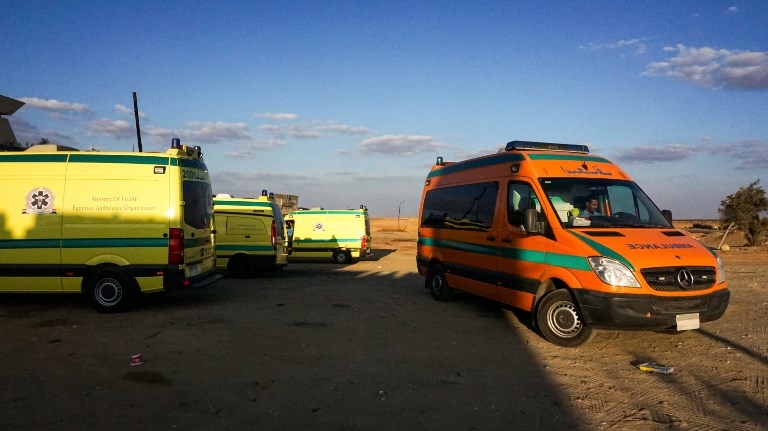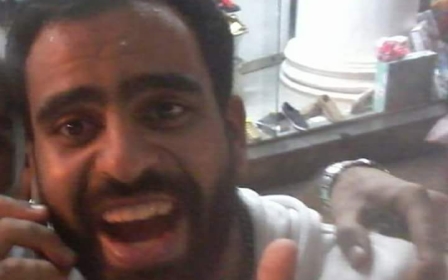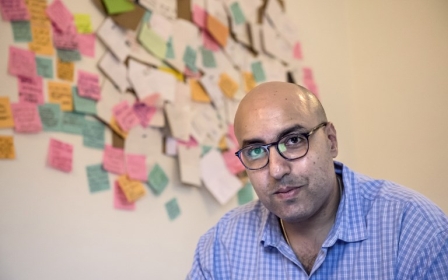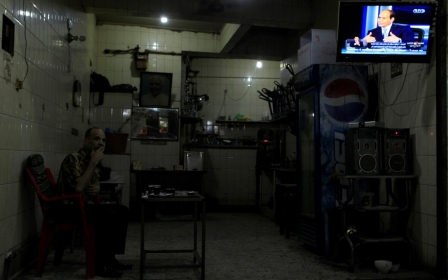Scores of Egyptian police officers killed in ambush

More than 50 Egyptian police officers were killed in an ambush by militants near the Bahariya oasis in the country's Western Desert, security and medical sources said on Saturday, in a rare flare-up outside the Sinai Peninsula.
The interior ministry said security forces hunting down militants in the region were attacked late on Friday on a road to the Bahariya oasis, about 200km southwest of Cairo.
An official statement said a number of the attackers and 16 police officers had been killed, but medics and security sources gave a death toll of more than 50 police.
An Egyptian with knowledge of the situation told Middle East Eye on Saturday that several high-ranking officers were among those slain, and also that the militants had taken hostages, although the account could not be independently verified.
There has not yet been a formal claim of responsibility. After the attack, there were local media reports that Hasm, a small militant group that has recently claimed attacks around Cairo, targeting judges and police - had claimed responsibility, although experts speaking to the New York Times discounted the claims.
The person speaking on condition of anonymity to MEE, however, maintained that Hasm was responsible and that its militants took a significant inventory of weapons from the police after the attack.
The incident involved a convoy of four SUVs and one interior ministry vehicle, which were ambushed from higher ground by militants firing rocket-propelled grenades and detonating explosive devices, one senior security source said.
Two truck drivers heading away from the scene told AFP they had seen heavy deployments of security personnel in the area and that military aircraft were also carrying out surveillance.
Security sources on Friday said authorities were following a lead to a militant camp in the desert where eight suspected members of Hasm were believed to be hiding.
String of attacks
Condemnation of the attack came in from across the Middle East and Europe, with France - which Sisi is due to visit next week - pledging solidarity after the latest losses for Egypt's security force in "the fight against terrorism".
The Muslim Brotherhood, once Egypt's largest opposition movement and with which Morsi was closely associated, has long denied involvement in the attacks.
Morsi was elected as Egypt's first civilian president in 2012, but the army overthrew him a year later after mass protests against the Islamist's rule.
Since then, an extensive crackdown on the Brotherhood has left it in disarray, with competing wings that have disagreed on whether to resort to violence, after bloody suppressions of their protests.
Analysts say a section of the Brotherhood has encouraged armed assaults against the police.
Hasm has claimed multiple attacks since 2016 on police, officials and judges in Cairo, while hundred of soldiers and police have been killed in the grinding IS insurgency in the Sinai.
In their statements, none of the militant groups claim any affiliation with the Muslim Brotherhood.
On 13 October, the Egyptian army said six soldiers were killed in a "terrorist" gun and grenade attack on a security post near the North Sinai provincial capital of El-Arish.
IS has also maintained a steady war of attrition with sniper attacks and roadside bombings.
But unlike its parent organisation in Iraq and Syria, the group has been unable to seize population centres in the peninsula, which borders Israel and Gaza.
Earlier this month, Sisi extended for a second time a state of emergency, first declared after bombings claimed by IS in two churches killed at least 45 people in April.
Middle East Eye propose une couverture et une analyse indépendantes et incomparables du Moyen-Orient, de l’Afrique du Nord et d’autres régions du monde. Pour en savoir plus sur la reprise de ce contenu et les frais qui s’appliquent, veuillez remplir ce formulaire [en anglais]. Pour en savoir plus sur MEE, cliquez ici [en anglais].




